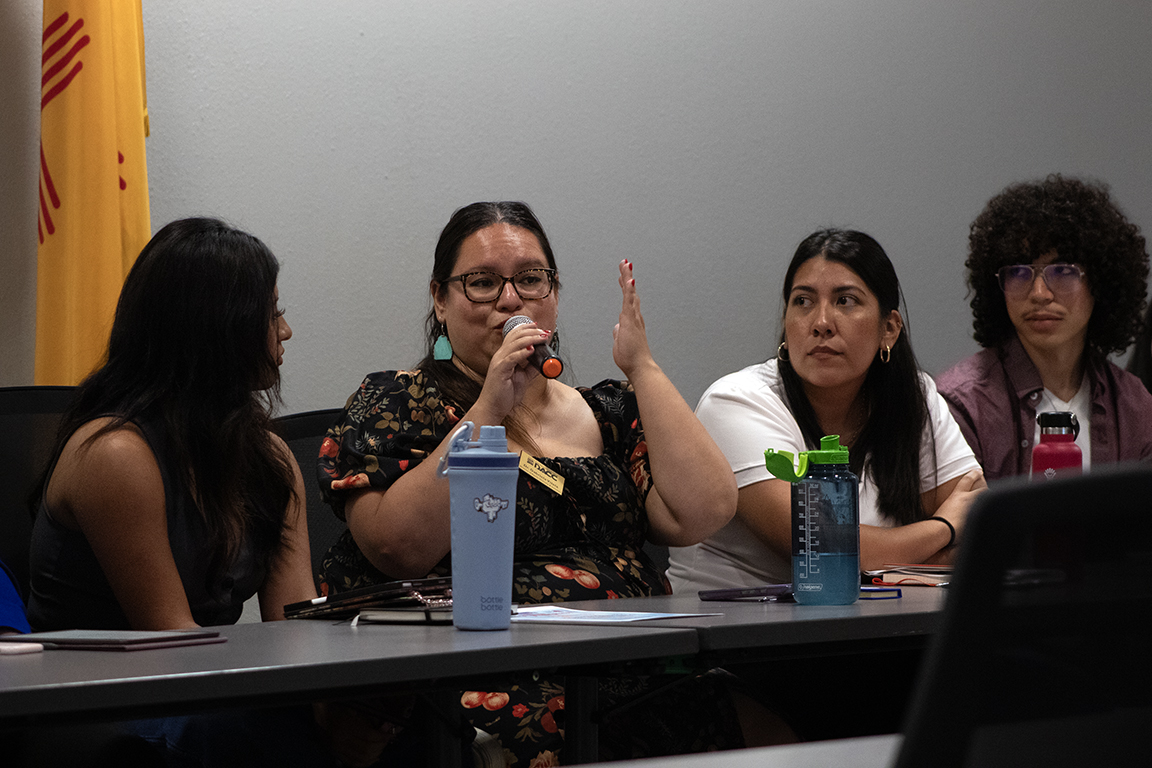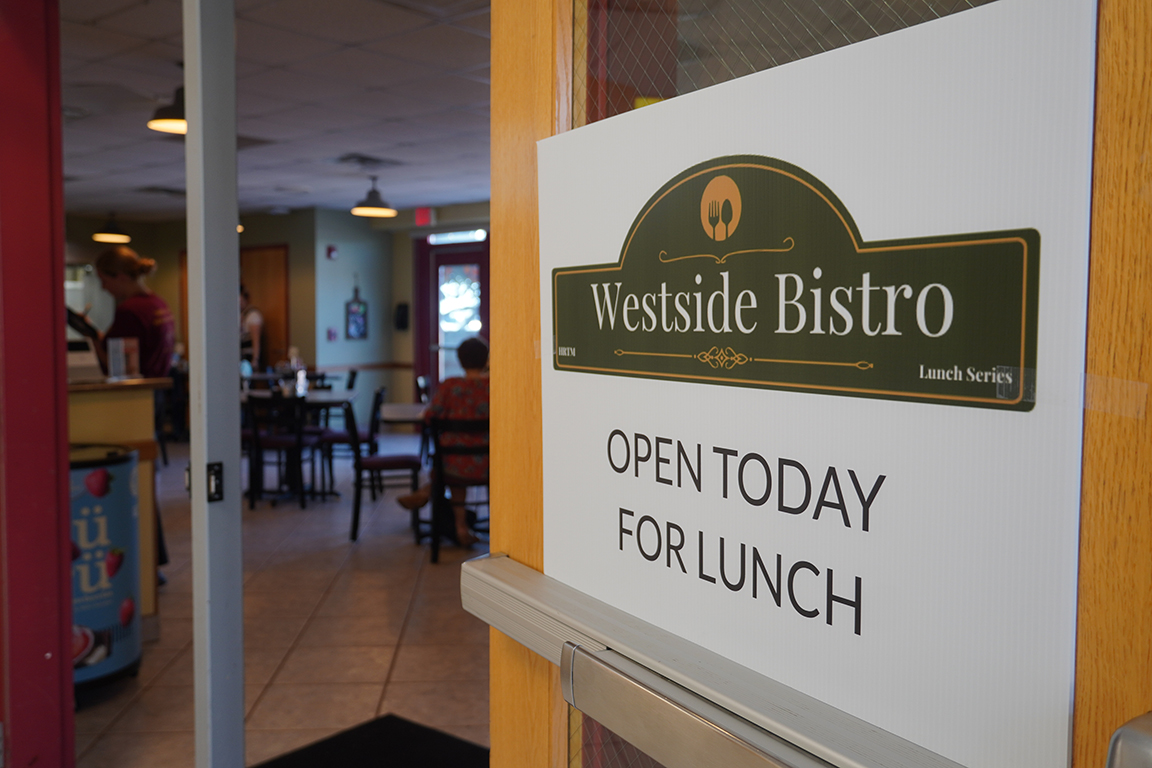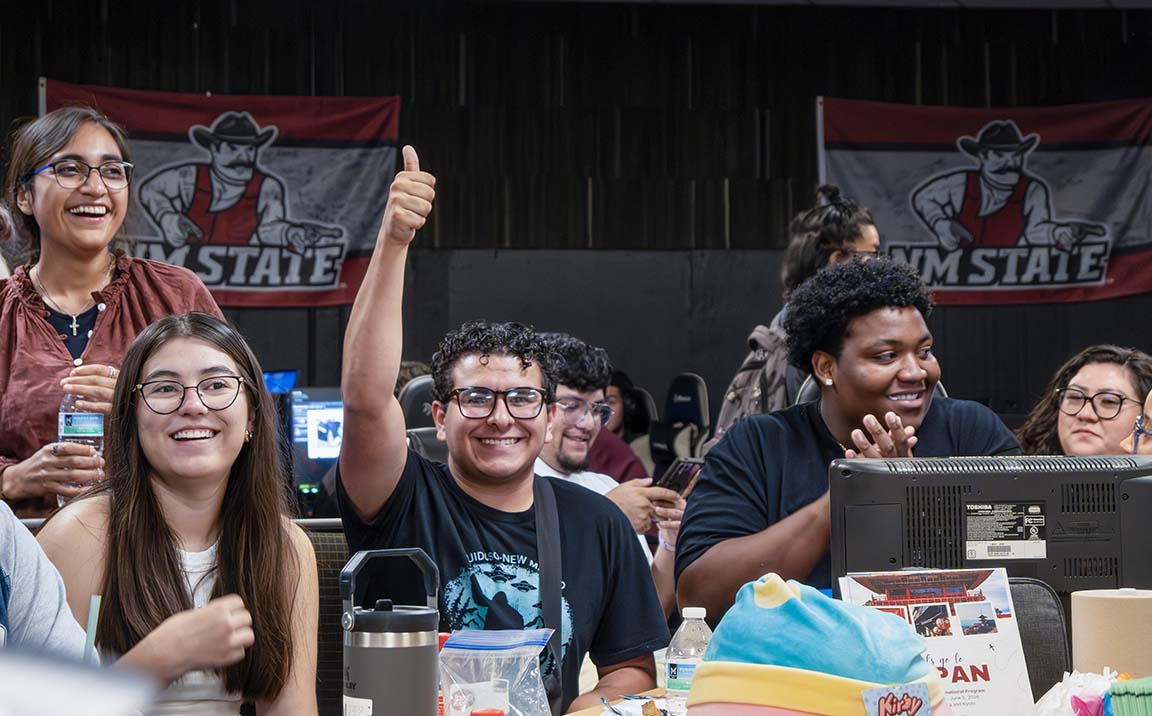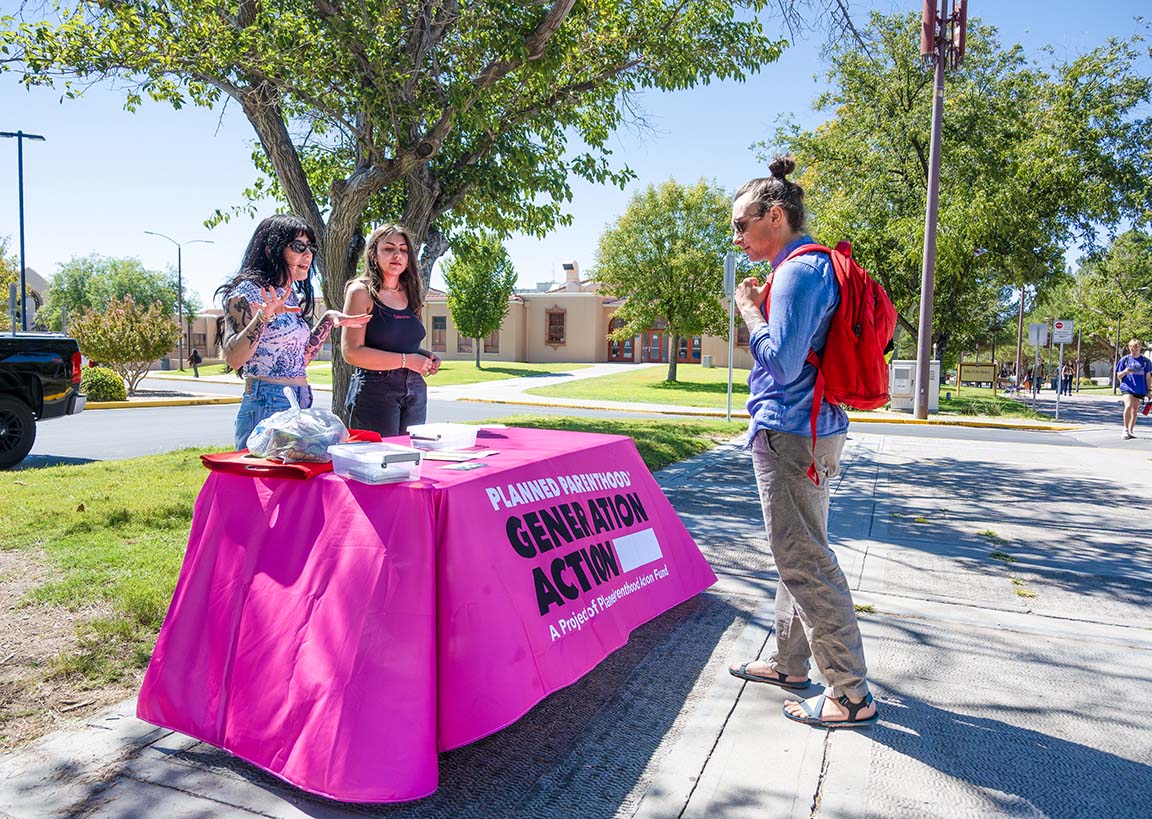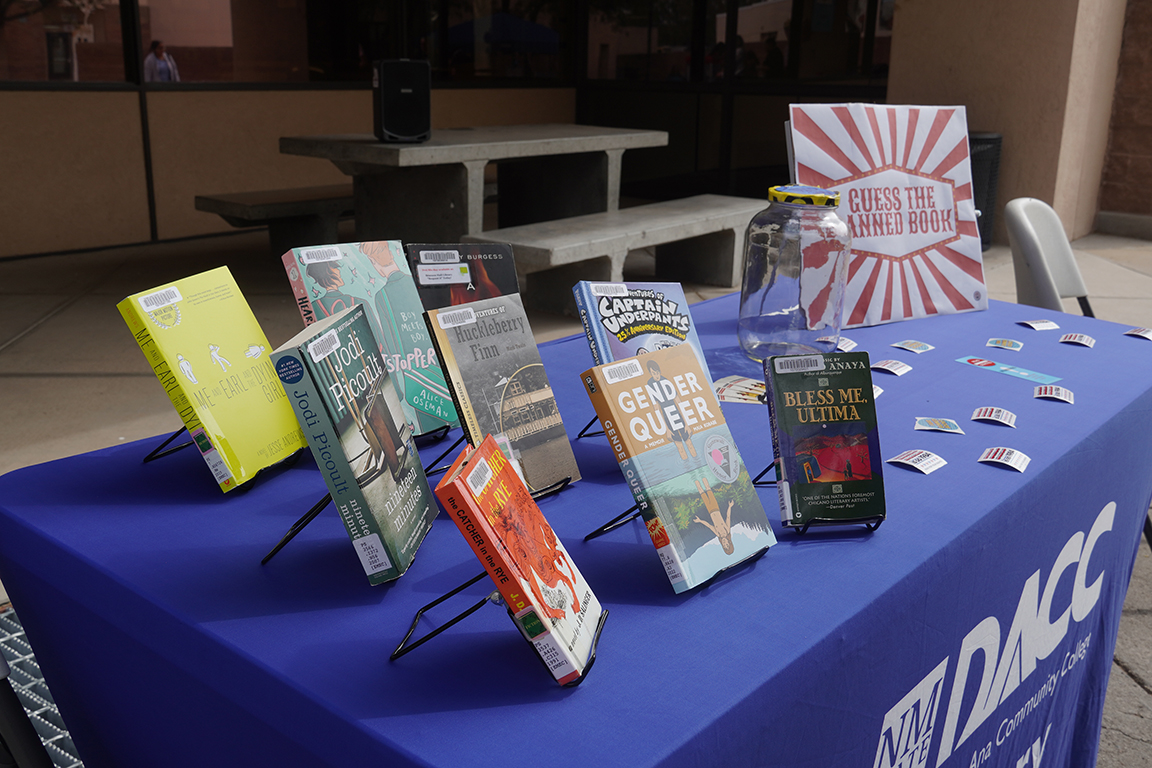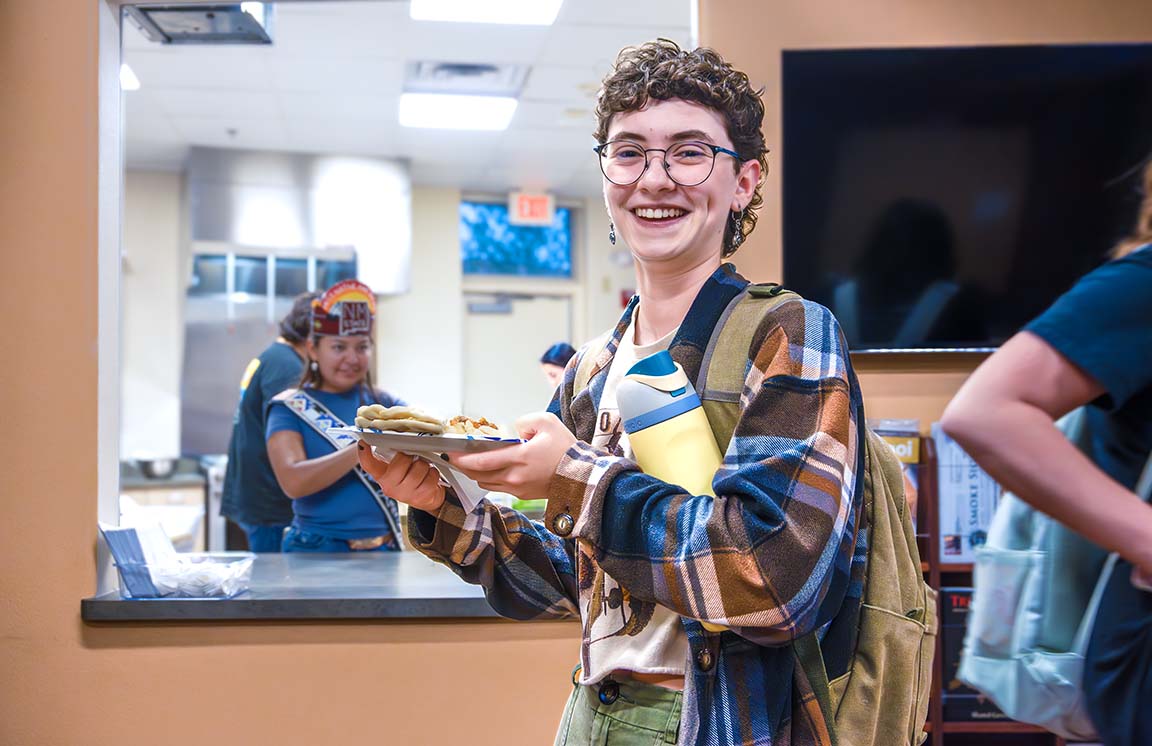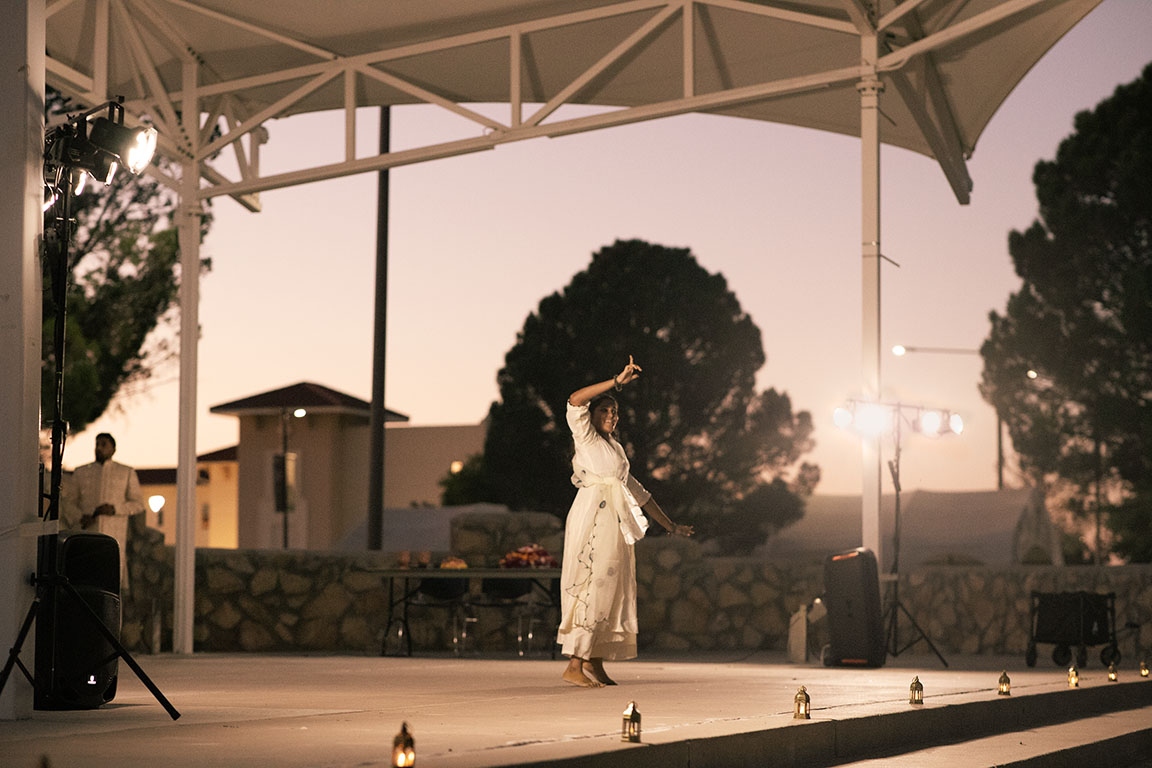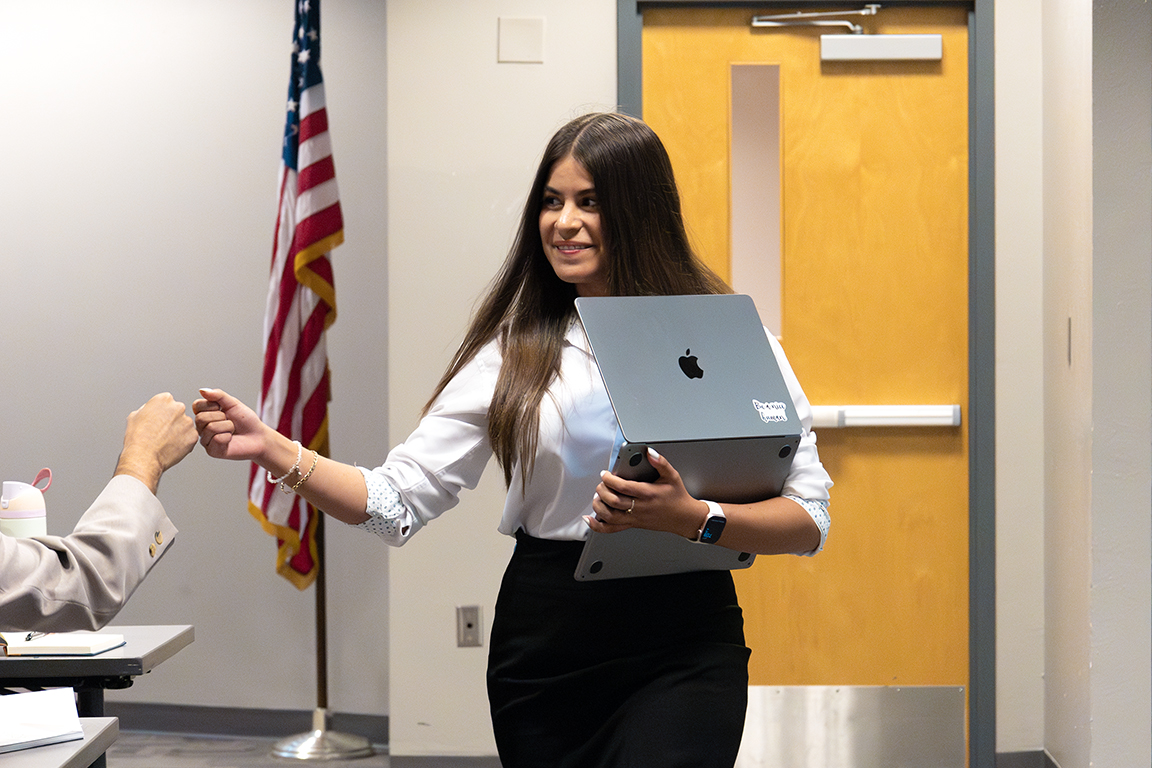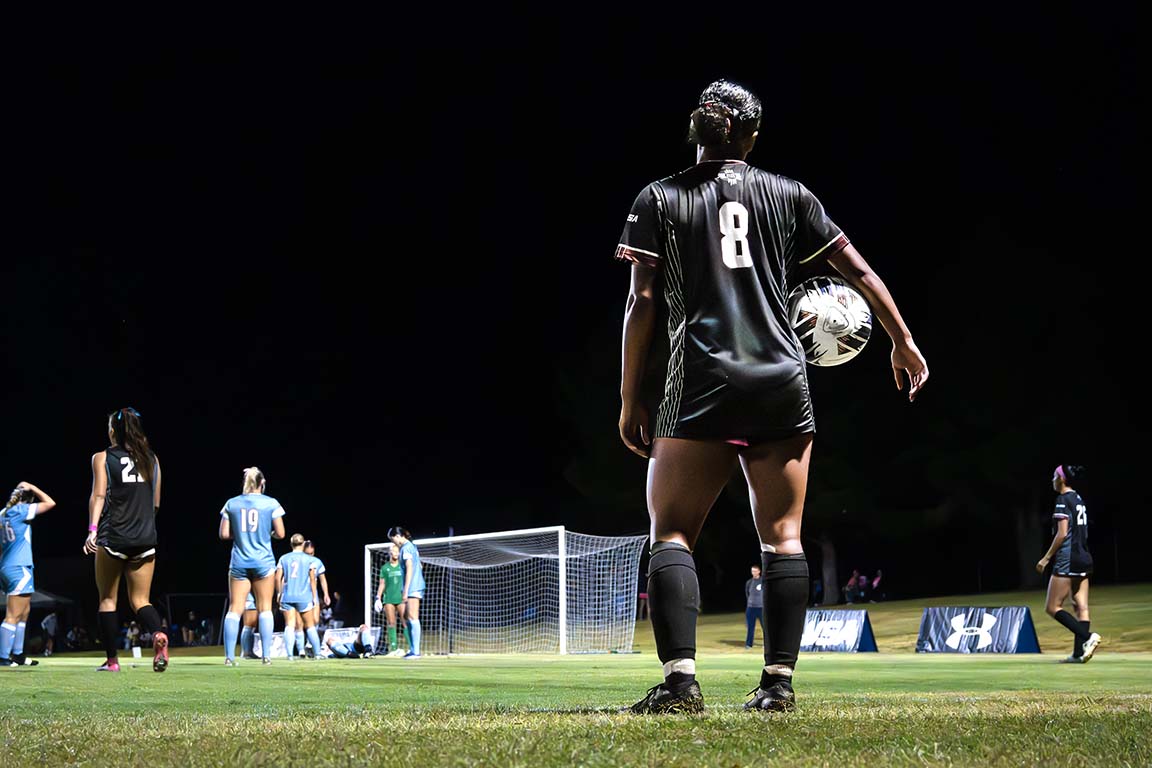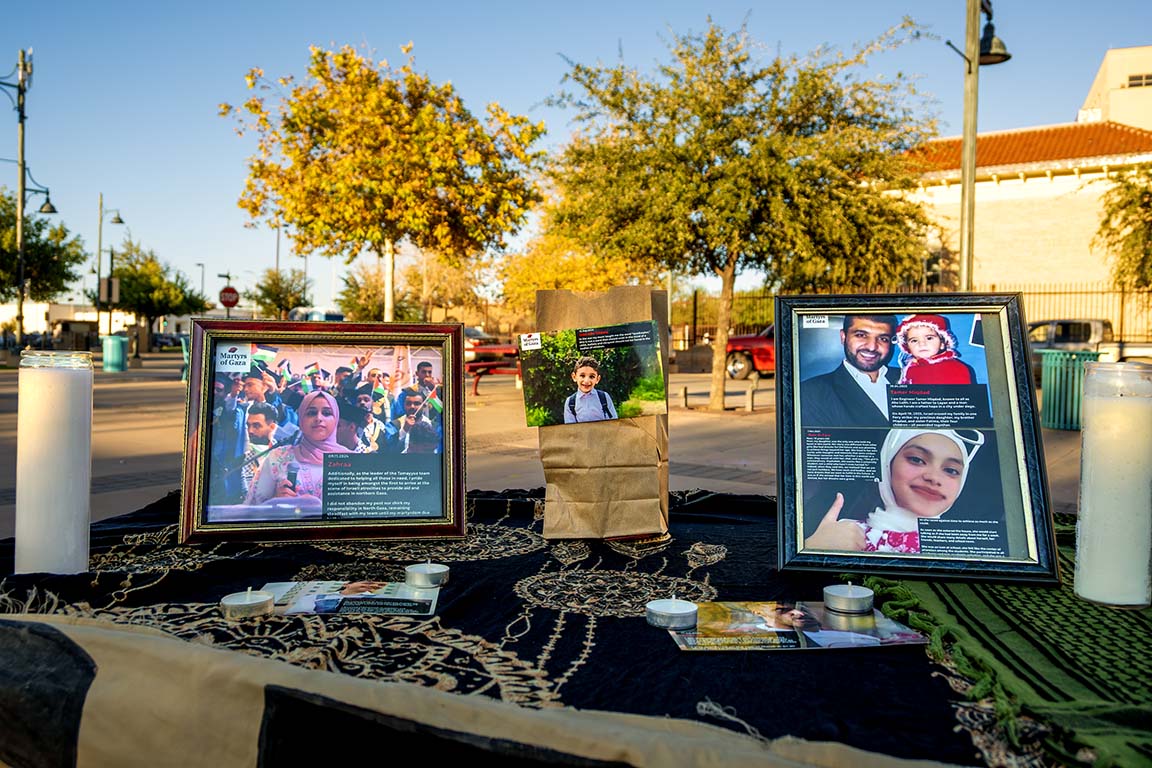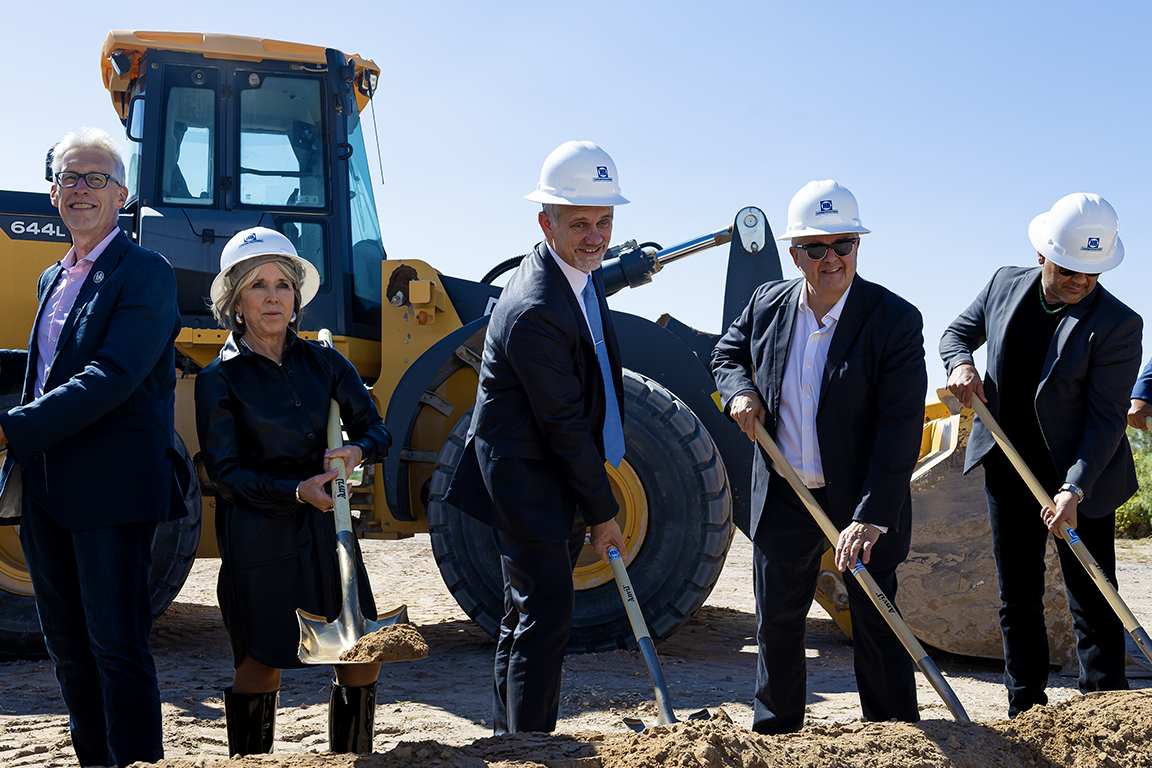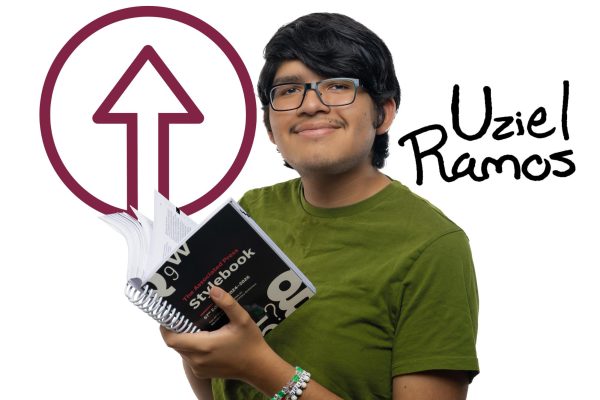Seven members from New Mexico State University’s Latin American Programs, including students, faculty, and community members, gathered in the Senate Chambers on Sept. 25 and formed the annual Voces panel to answer questions prompted by the director of Latin American Programs, Dr. Rio López.
The panel members were Zarya Martinez, HSI Program Manager Sofia Ugarte, Karla Robles-Guzman, Dr. Gabriela Vitela, English Assistant Professor Dr. Vanessa Aguilar, Andrés Uribe, and Tatianna Prieto — each of whom answered Dr. López’s questions based on their community’s needs. The topics that dominated the panel were expanding resources to the institution’s undocumented students, outreach to Latinx programs on NMSU campuses outside Las Cruces, uplifting other minorities in the community, and intersectionality.
When asked what the word ‘intersectionality’ means, Martinez said that its definition is unique to each individual due to everyone’s different experiences.
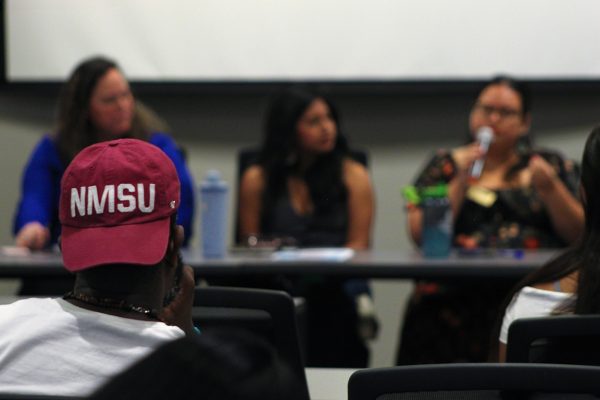
“It does vary sometimes from person to person,” Martinez said. “But as I see it, it is the crossroads where a person’s specific identities meet. So, someone may not just be a Black person, but a Black, neurodivergent, and queer woman, too. And some people do not realize that carries a lot of weight, that is like hit after hit.”
Ugarte made her case for the institution to continue providing the Alamogordo campus with more necessary resources by highlighting the university’s strides in equity.
“Our title five group has done great things. There are two members of my team here right now, but they are usually out there working on events, and I wanted to thank them for the work they do every day,” Ugarte said. “And last summer, we had a huge success with getting our multicultural programs supported there. It is a very refreshing change to see, and we need it to continue.”
One change that the panel drew attention to was that Chicano Programs has been renamed Latin American Programs. Martinez emphasized that even these minor changes have power.
“The biggest thing that happened recently was that the program changed from being the Chicano Programs to the Latin American Programs, and I think that’s incredibly important,” Martinez said. “It is just one word, you think, but words have power. And the title being expanded showcases the amount of people that are not only now just welcomed, but also invited to these programs.”
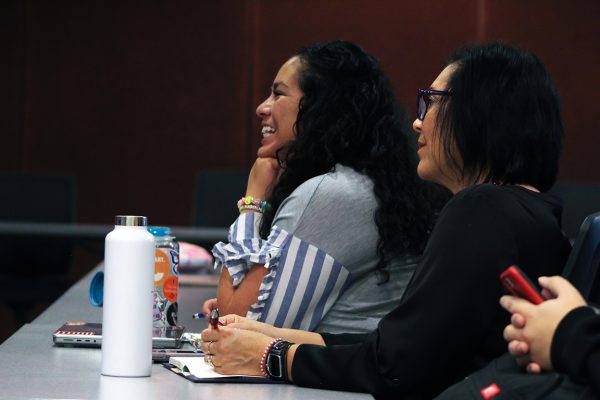
However, Uribe mentioned that although some goals are achieved quickly, most of these achievements are ongoing processes and require to be taken in steps. Members of the panel agreed that incremental progress can be just as significant as big changes, like with NMSU’s growing Borderlands and Ethnic Studies department, or BEST.
“I have been working with BEST for the last almost three years now on some curriculum writing projects. We are currently pushing for seven lessons to be introduced into K-12 schools, varying in different topics, but with a highlight on Latinx stories,” Uribe explained. “Not only will students learn about history that happened locally, but also how the region has affected global topics. Whenever we do research for these lessons, we end up finding out how even events that happen here in the Borderland can affect nations across the globe.”


